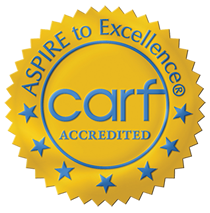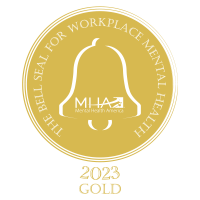24/7 Crisis Help Line: 877-470-4668
Access to Services: 877-470-7130
Customer Services : 877-470-3195
24/7 Crisis Help Line: 877-470-4668
Access to Services: 877-470-7130
May 21, 2020
May is Mental Health Month more important than ever with COVID-19
• May is Mental Health Month has been celebrated in the US for 49 years and mental health is more important than ever this year. Just weeks ago, we had no idea that our world was going to be turned upside down by COVID-19.
• While the annual NCCMH May is Mental Health Month Color Run/Walk and other annual events are postponed until fall this year, the agency is encouraging the community through placement of signs celebrating mental health. The sign series are located at:
COVID-19 is impacting the mental health of literally every American. While many people with mental health and intellectual/developmental disabilities regularly experience social isolation and loneliness, many others are impacted this year too.
Stroll through a PhotoVoice exhibit to view poignant photographs and interpretive captions created from personal experiences. PhotoVoice is a series of group conversations about life experiences and ways of coping with mental health issues to bring greater awareness to the community. See NCCMH’s PhotoVoice virtual exhibit on www.norcocmh.org. The exhibit is also virtually hosted by libraries in Alden, Charlevoix and Petoskey in celebration of May is Mental Health Month.
Getting Help for Stress, Anxiety, Depression
North Country Community Mental Health Authority serves adults with serious mental illness, persons with intellectual and developmental disabilities, children with serious emotional disturbance, and persons with co-occurring substance use disorders in six counties: Antrim, Charlevoix, Cheboygan, Emmet, Kalkaska, and Otsego.


Comprehensive Assessment Policy
Confidentiality Use and Disclosure Procedure
Fingerprinting Photography Audio-Video Use of One-Way Glass Policy
Grievance and Appeal Procedure
Psychotropic and Other Medications Policy
Resident Communication and Visitation Procedure
Resident Freedom of Movement Policy
Resident Right to Entertainment, Information, and News Procedure
Residential Property and Funds Procedure